Plundering Nature’s Bounty
In the Central African Republic, the Theft of Valuable Hardwood Fuels Insecurity
ADF STAFF
Despite an amazing array of natural resources, the Central African Republic (CAR) has endured years of civil war, poor governance and corruption. Traffickers, terrorists, mercenaries and thieves are stealing its wealth of diamonds, gold and high-grade lumber on an industrial scale.
More than a third of the country is forest, contributing 13% of its export revenue, according to Enhancing Africa’s Response to Transnational Organised Crime (ENACT), a European Union project studying organized crime in Africa. But that’s only the revenue from legitimate logging operations. Untold amounts of furniture-grade hardwood leave the country illegally, usually shipped to China to make hand-crafted furniture.
African countries lose $17 billion each year in illegal logging. The United Nations has reported that Africa’s share of hardwood exports to China has risen from 40% in 2008 to 90% as of 2018. Southeast Asia once had its own rosewood forests but became so depleted that loggers began plundering other parts of the world.
“Rosewood” is the name usually used to describe the hardwood leaving Africa, but it is not totally accurate. The term rosewood is used to designate several hundred species of tropical timber found across West and Central Africa, Southeast Asia, and Latin America. Some rosewood varieties are classified in China as “hongmu,” a superior, furniture-grade standard.
Rosewoods are the most highly prized hardwood throughout the CAR and the rest of Africa, but loggers also harvest other species. In the CAR, a reddish-brown hardwood called sapele has become popular in China in recent years. Loggers also plunder teak, redwood and mahogany.
Hongmu furniture originally was crafted for such people as Ming emperors and the extremely wealthy. During the time of China’s Cultural Revolution, such furniture was reviled and violently confiscated, with the Chinese Communist Party regarding it as “bourgeois” wealth, according to Foreign Policy magazine.
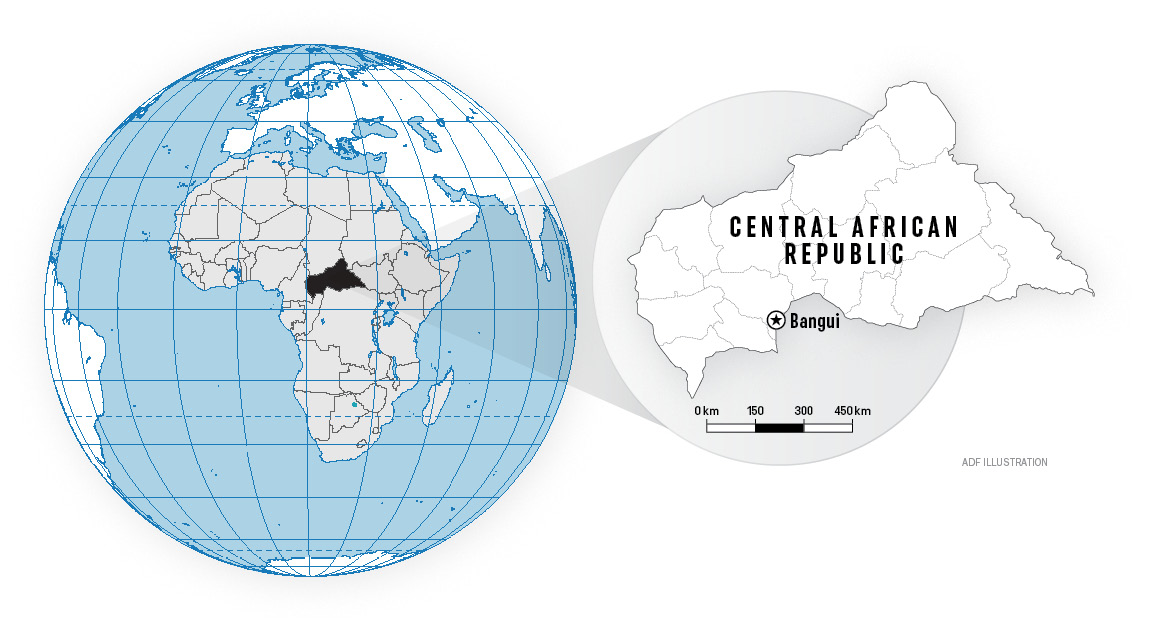 Today, rosewood is used in China for custom-made furniture, which has become popular with the middle class and is regarded as a status symbol and a long-term investment. The market for rosewood furniture in China is estimated at $26 billion annually.
Today, rosewood is used in China for custom-made furniture, which has become popular with the middle class and is regarded as a status symbol and a long-term investment. The market for rosewood furniture in China is estimated at $26 billion annually.
Media censorship in China means most Chinese citizens are unaware of how big a problem illegal logging has become in African countries. “There is no genuine coverage from the Chinese side,” Haibing Ma, an Asia policy specialist, told Foreign Policy.
Rosewood has become the world’s most widely traded illegal wild product. Interpol says it is trafficked far more than ivory, rhino horns or pangolin scales. It sells for up to $50,000 per cubic meter and increases in value 700 times from the logger to the end buyer.
The logging generally begins with the bribing of local and national CAR officials. The criminal chain starts with traffickers from the bordering countries of Cameroon, Chad, the Democratic Republic of the Congo (DRC), the Republic of the Congo, Sudan and South Sudan, according to a July 2023 study by ENACT.
“The kingpins, however, are foreign nationals from Asian countries,” ENACT reported. “While the CAR is the source country for illegal logging, illicit timber and products are trafficked through neighbouring countries via multiple road and waterway transit corridors.”
Conditions in the CAR are ideal for crime. The landlocked country has 5,200 kilometers of borders with its six neighboring countries, which makes border enforcement almost impossible. With negligible law enforcement, the country has attracted an array of profiteers and terrorists who want to use logging money to buy weapons.
Illegal logging can multiply corruption and crime throughout the country. Researchers from the Africa Center for Strategic Studies (ACSS) said logging amplifies organized crime and extremist threats and, in turn, makes governance more difficult because it involves collusion between senior government officials and criminal networks. The collusion weakens the control of natural resources.
“Organized criminal activity can happen at any stage of the supply chain, during extraction, milling, transportation, marketing or profit laundering,” the ACSS reported.
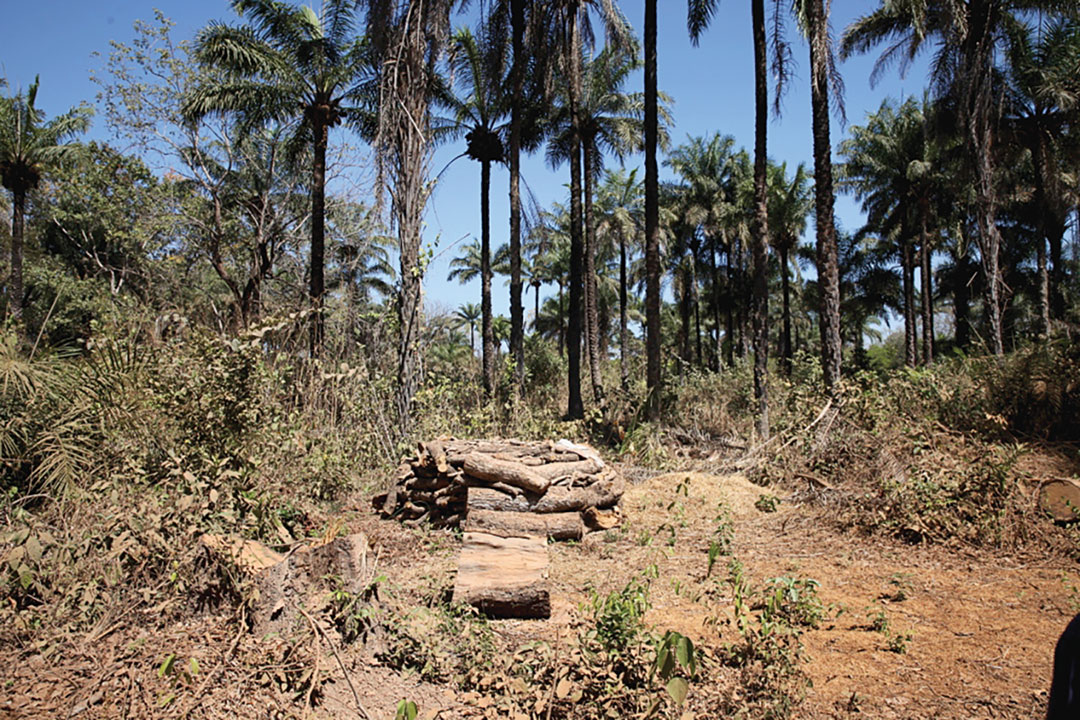
OTHER COUNTRIES INVOLVED
Although the CAR is one of Africa’s hotbeds for illegal logging, it is far from the only African country dealing with such issues:
• In 2021, the Zambian Anti-Corruption Commission seized 47 trucks filled with illegally harvested rosewood. The ACSS reported that the wood was headed for the Namibian and Zimbabwean borders and was one of several instances of illegal logging involving members of the Zambian government.
• The ACSS also reported that in Equatorial Guinea, one top government official “profited immensely” from the transport and export of rare hardwoods. The center reported that he sold some national forests to private companies and used a shell company linked to the Ministry of Agriculture to charge fees for processing, loading and shipping the timber.
• In Gabon, officials seized more than 390 containers loaded with Kezavingo logs, a type of rosewood, valued at $250 million, the global economy website Quartz reported in 2019. A month later, 350 of the containers disappeared, exposing the corruption and lax regulation in the logging industry there. After 200 of the missing containers were found and seized again, Gabon’s then-president fired his vice president and minister of forestry.
• In Mali, illegal loggers have harvested vast amounts of a type of rosewood known as kosso, which is particularly popular in China. Between May 2020 and March 2022, China imported 148,000 tons of kosso from Mali, despite a ban on the harvest and trade of the trees, the Environmental Investigation Agency (EIA) reported. The agency said it took 220,000 trees to produce that much lumber, filling more than 5,500 shipping containers. The EIA report noted that the illegal shipments are the result of “deeply entrenched corruption” in Mali, including invalid permits and civil servants receiving bribes.
• In mid-2023, the Nigerian newspaper This Day reported that Nigeria’s Taraba State had imposed a total ban on the logging of a type of rosewood popularly called Madrid. The governor extended the ban to include the processing and sale of the valuable hardwood. The paper noted that thousands of the trees had reportedly been cut down in the state over the previous eight years, with a large portion of the profits ending up “in private pockets rather than government coffers.”
Illegal logging in Africa long has been associated with extremist groups and criminal networks. In Nigeria, billions of dollars’ worth of rosewood are exported each year, much of it from forests controlled by the terrorist group Boko Haram. In The Gambia, exported rosewood logs are smuggled in from separatist rebels in neighboring Senegal’s Casamance region.
Timber trafficking networks in Tanzania and the DRC linked to militant groups in Mozambique have made millions of dollars per month from illegal logging, The Conversation has reported. In Senegal, the Movement of Democratic Forces of Casamance has funded its insurgency through illegal rosewood logging. Militias in Liberia and the CAR also have used logging to finance their operations. Global Witness has reported that armed groups in the CAR have been using the “cover of conflict” to strip the country’s rainforests.
In Mali, extremists use the timber trafficking issue as a means of propaganda, telling the population they will protect the country’s forests from loggers. “Supporters of the rebels have exploited the forest crisis and the frustration among the population in the Southern provinces as a way to promote their cause,” the EIA reported, according to Voice of America. “They frequently allege that only the strict discipline of the jihadist can put an end to the rosewood crisis and the circles of grand corruption it has fueled.”
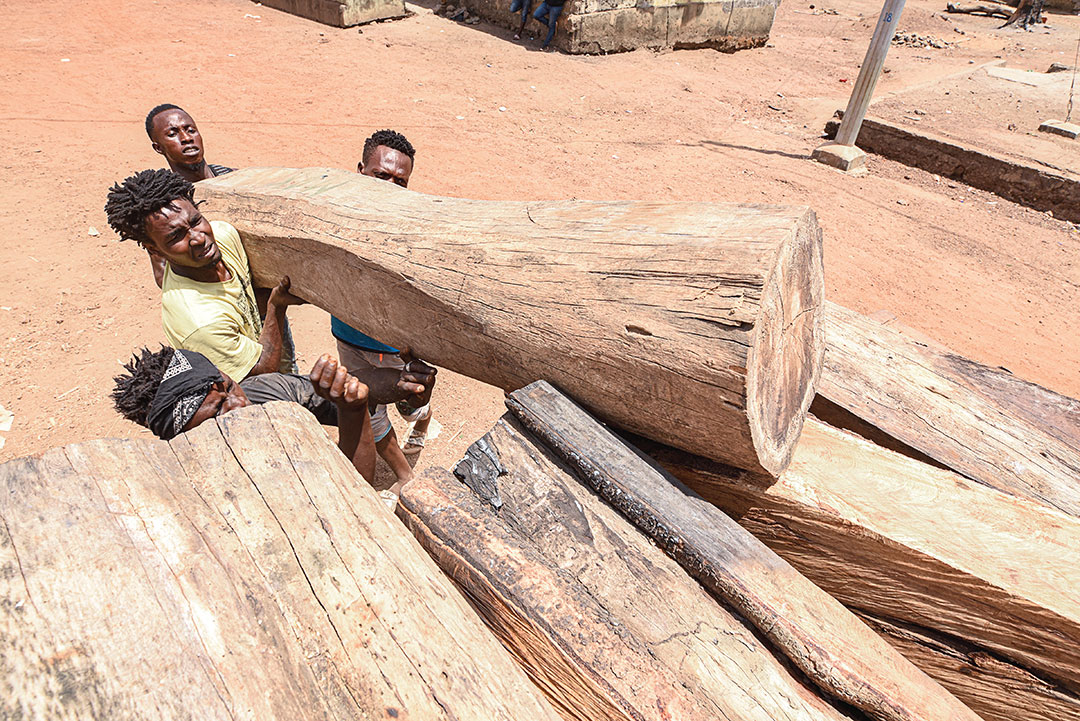
WAGNER GROUP INVOLVED
Russian Wagner Group mercenaries are getting in on the action. The group has supported various leaders in Africa, including in the CAR, Libya, Mali and Sudan, in exchange for mineral rights. In the CAR, Wagner mercenaries serve as the personal guards of President Faustin-Archange Touadéra.
The research organization All Eyes on Wagner, which investigates the group’s activities around the world, found that the CAR government gave a company called Bois Rouge a 30-year logging concession in 2021 to harvest trees from nearly 186,000 hectares — an area more than twice the size of the Mbaéré-Bodingué National Park just across the Mbaéré River. The company, while supposedly operated by a CAR citizen, also appeared at a Shanghai trade exhibition and was listed as being Russian. If Wagner exploits just one-third of the contracted land, by some estimates it could reap nearly $900 million by selling the logs on the international market.
In 2023, CBS News secretly filmed Wagner trucks leaving the group’s military base near the capital, Bangui, loaded with wood. Russian mercenaries guarded the convoy all the way to the border with Cameroon, where they were waved through.
“At the border, the drivers presented a safe passage document stamped by the CAR government,” CBS reported. “The document functions like a diplomatic badge — it means vehicles cannot be searched.”
ENACT said one investigative report concluded that, “In order to log the timber for almost no cost, the mercenaries have committed gross human rights abuses, including invading and ‘emptying’ towns and villages. Foreign mercenaries are therefore partly responsible for the instability in the rainforest region.”
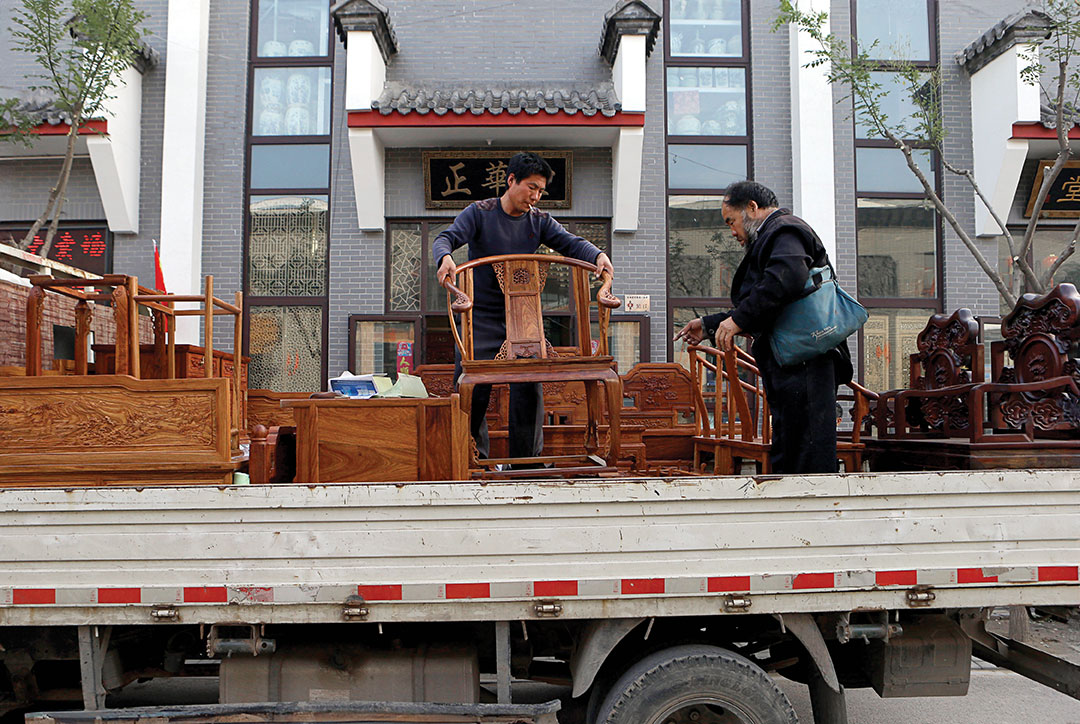
STOPPING THE LOGGING
One strategy to address the problem of illegal logging has been for countries to declare moratoriums on any kind of tree harvesting. Generally, such restrictions have not worked; it’s easy to get around them when state security and justice systems are in on the crimes. Several countries have imposed, then abandoned, moratoriums, saying they lacked the resources to enforce them.
Stopping illegal logging will require a resolve that few countries have been able to muster. ENACT says the starting point would be with the highest levels of government in each country demonstrating the political will to stamp out extractive corruption in the logging sector, particularly the illegal loggers state authorities protect.
A report by The Conversation said that stopping illegal logging requires dismantling the high-level criminal networks driving it and stopping the government-embedded actors who enable it. Oversight and accountability are critical.
The Institute for Security Studies says the biggest challenge to illegal logging is stamping out the corruption that pervades the entire process. Individual countries can’t do it on their own. Referring to the CAR, the institute said it would be a “Herculean task” to prevent foreign actors, businesses and enablers from illegally logging and trafficking timber.
“It will likely require pressure from the international community for sanctions against enterprises in the global timber trade,” the institute noted.
The ACSS says stopping illegal logging will require strengthening independent accountability rather than just relying on governments to do the right thing. To that end, the center said it could include deployment of inspectors general, the creation of designated forestry prosecutors with the offices of attorneys general, and the creation of subregional judicial oversight bodies.
Since the complicity of government officials hinders the power of domestic judiciaries in prosecuting illegal logging, strong external oversight is necessary, the center concluded. “This can come through domestic civil society and, in certain cases, international cooperation on intelligence sharing and prosecution.”

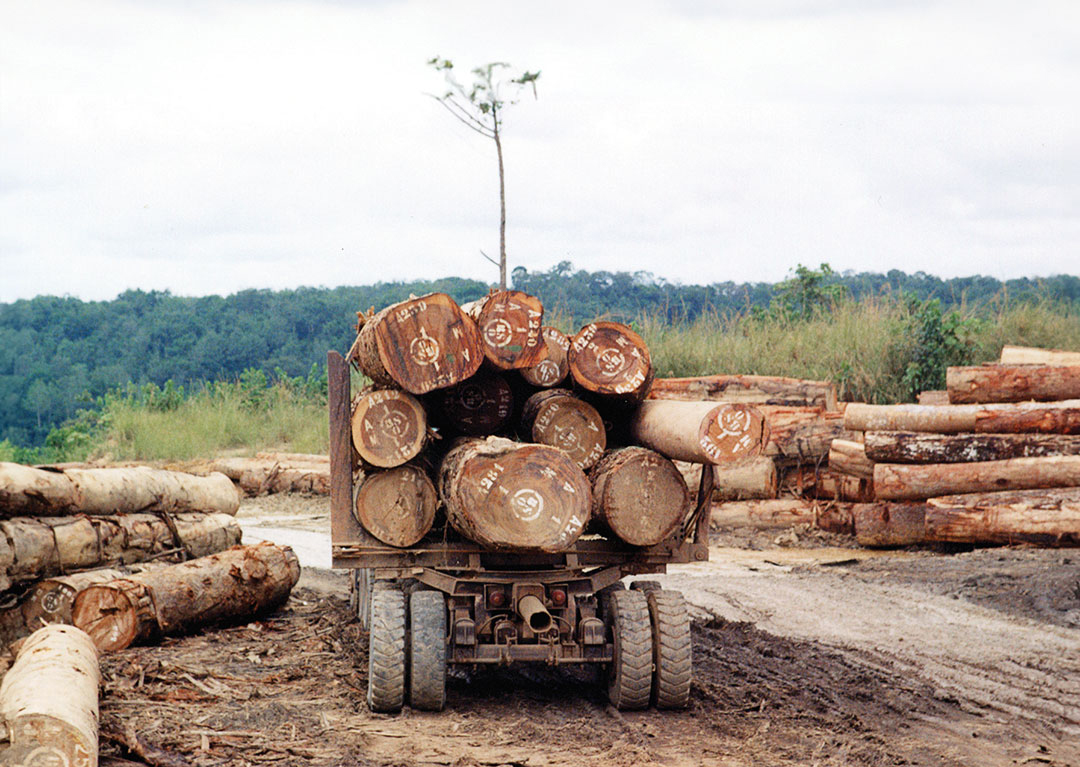
Comments are closed.